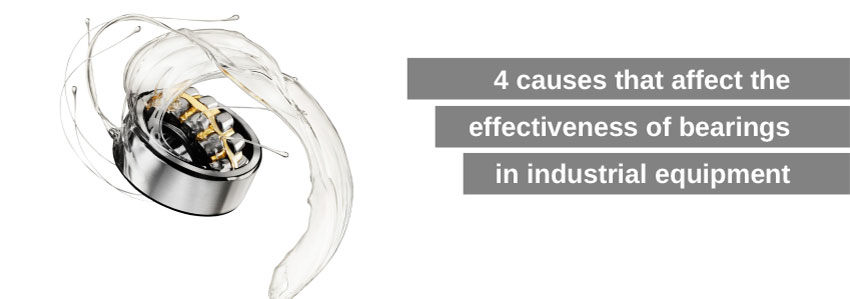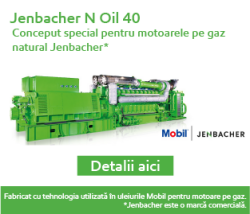4 causes that affect the effectiveness of bearings in industrial equipment
 4 causes that affect the effectiveness of bearings in industrial equipment
4 causes that affect the effectiveness of bearings in industrial equipment
Bearings can be found in most equipment used in the industry sectors. With their help, a smaller centrifugal force (torque bearings) that will produce an increased centrifugal force, thus sending a mechanical power for the entire industrial equipment.
Along the years there have been different myths about bearings used in industrial equipment, but the experts agree that just like other components in industrial equipment, bearings require proper lubrication, in the right amounts, in order to work at maximum effectiveness. Thus the equipment will have to suffer from the point of view of productivity as well as concerning lifespan.
Please find below the most frequent 4 causes that can affect bearings in industrial equipment and how to avoid them to make sure that bearings contribute to an increase in equipment performance.
1. Lack of lubrication
Especially in the case of worm bearings, functioning without lubricating will lead to irreparable malfunctions. Sadly, there are cases when, out of neglect or lack of experience, the equipment is started without reading the warnings section in the instruction book, where you can find information on whether the equipment was or was not lubricated by the manufacturer.
The use of an equipment with bearings not lubricated will cause a rapid degradation of its mechanisms. And even though you will add lubricant after this stage, the prejudice brought to the equipment will, in most cases, be permanent and the bearings will require replacing.
Make sure every time that bearings in your equipment are lubricated before starting any operation.
2. Using an insufficient quantity of lubricant
One of the aspects that directly affect the reliability of bearings is friction. In order to be protected from its negative effects, bearings must be lubricated with a sufficient quantity of oil or grease. No matter if we refer to adding an insufficient quantity of industrial lubricant, or a longer change interval for it, both aspects can cause irreparable malfunctions to bearings.
In this respect, always keep count of the recommendations of equipment manufacturers related to the quantity of lubricant that must be used and its change interval.
3. Lubricant contamination
Often, even though you have properly lubricated your equipment, because of the extreme conditions of use, particular to the industry sector, you can find contaminants in the lubricant that protects bearings. Thus, no matter if we talk about water, dust or metal particles, they can contaminate and at the same time affect the performance and protection properties of the lubricant.
Reactions like corrosion, oxidation, thickening of the lubricant or foaming can have devastating effects on your equipment. Apart from choosing Mobil industrial lubricants, that are resistant to contamination, there are also many ways you can prevent contamination of industrial lubricants. See here which are the 3 types of contaminants that appear frequently in the lubrication process for industrial equipment and how to avoid them.
4. Choosing the lubricant that is wrong
Another frequent factor that affects industrial bearing effectiveness is the use of an improper lubricant. Apart from being called "the best industrial lubricant" for bearings, you should also check the compatibility with the type of bearing used.
In this respect, it is extremely important that you use the recommended lubricant according to the particularities of each application. Given the fact that every equipment has its own needs, choose an industrial lubricant that meets the needs with its properties.
If you are not sure what type of lubricant is right for bearings in the industrial equipment you own, click the image below and a Star Lubricants representative will offer customized consultancy in choosing Mobil industrial lubricants.
Additionally, follow the recommendations of this article to protect industrial bearings, thus ensuring an extended lifespan of the equipment and an increase in productivity.







